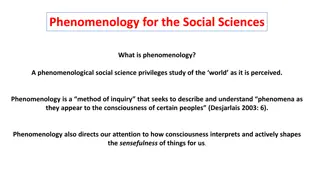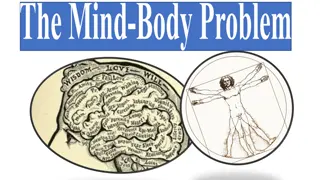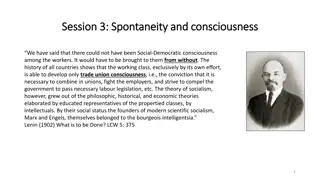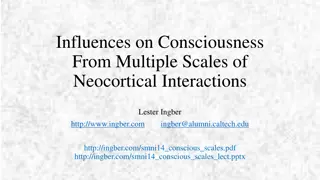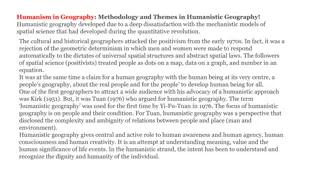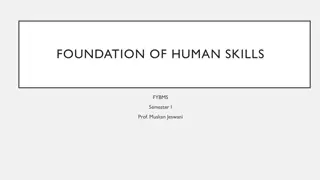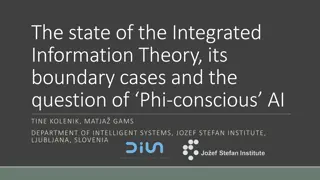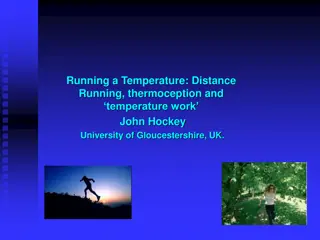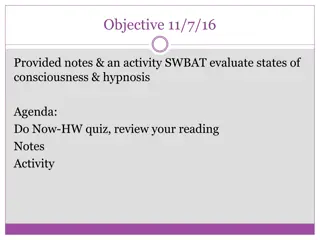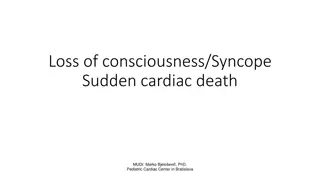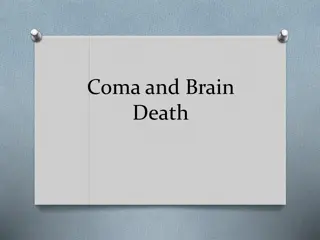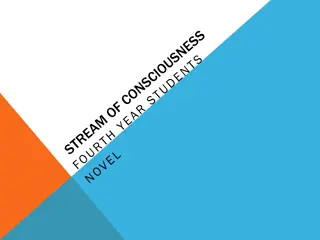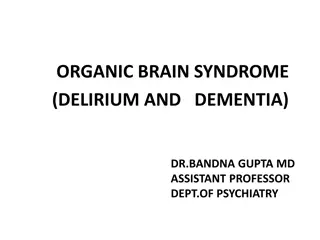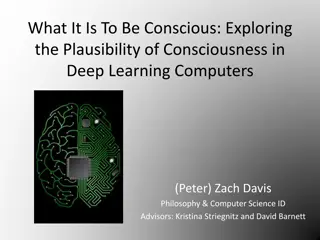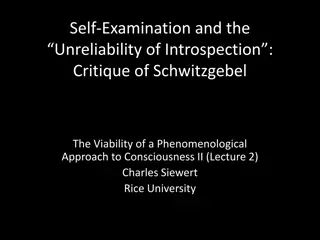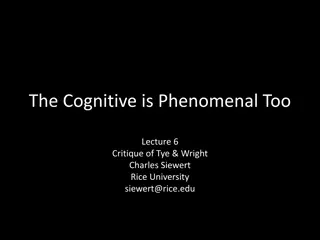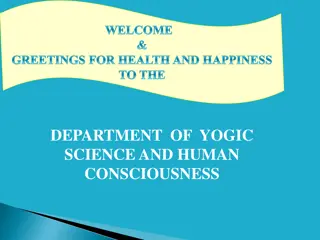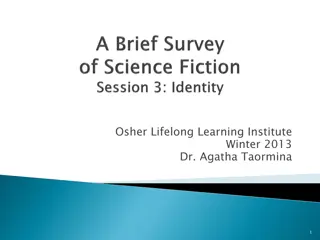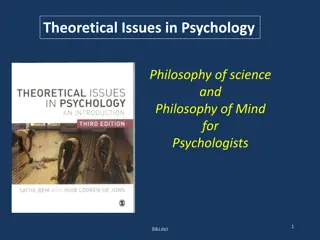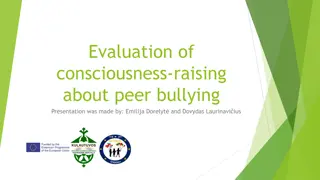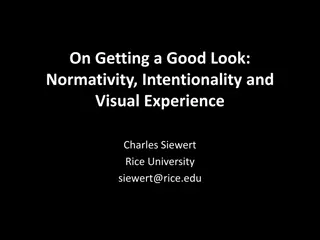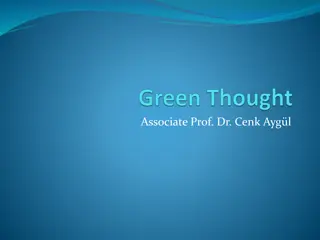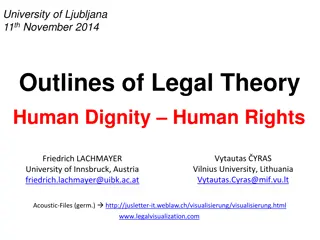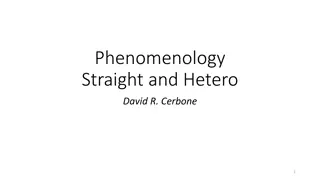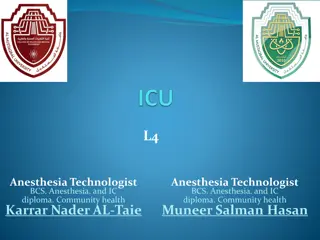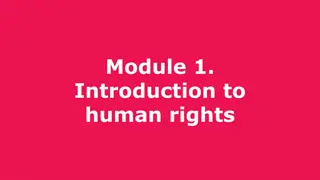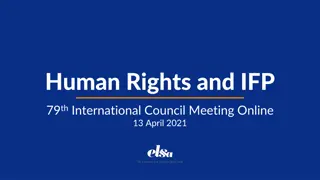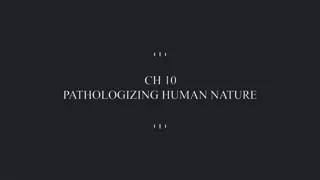Understanding Fainting: Causes, Symptoms, and Treatment
Fainting, a sudden loss of consciousness, can be caused by various factors such as hyperventilation, heart disease, medications, alcohol use, and more. Recognizing symptoms like lightheadedness, weakness, and blurred vision is crucial. Learn how to assist someone who feels faint and what to do if th
0 views • 9 slides
Understanding Phenomenology in Social Sciences
Phenomenology in social sciences focuses on studying the world as perceived by individuals, emphasizing the active and passive aspects of consciousness. This approach explores how consciousness shapes our perception of the world and highlights the intentional acts and embodied experiences that give
0 views • 13 slides
Understanding Human Rights in Queensland Government Work
The Human Rights Act of 2019 in Queensland outlines protected rights such as equality, freedom of expression, and fair trial. All public service employees must adhere to these rights, ensuring decisions and actions respect human rights. This act applies to everyone in the Queensland Government, with
2 views • 13 slides
Understanding the Basic Concept of Human Rights in Modern Jurisprudence
Human rights are natural and inalienable, essential for human life, based on universal principles. The concept of human rights is both simple and complex, requiring societal development and political will for implementation. Rooted in natural law theory, human rights have evolved from natural law to
1 views • 24 slides
The Mind-Body Problem: Exploring Consciousness and Intentionality
Delve into the intriguing questions surrounding the mind-body problem, such as the nature of consciousness, intentionality, subjectivity, and causation. Explore the mysteries of how thoughts, beliefs, and sensory experiences interact with the physical body and the external world. Contemplate the eni
0 views • 33 slides
The Role of Consciousness in Social-Democratic Thought
The development of socialist consciousness among the working class is discussed, emphasizing the need for outside influence to foster class and political awareness. Key figures such as Lenin and Kautsky are cited in their exploration of how consciousness is acquired and its significance in the labor
0 views • 6 slides
Exploring Influences on Consciousness Through Neocortical Interactions
Delve into the intriguing realm of consciousness with Lester Ingber's research on the influences stemming from multiple scales of neocortical interactions. The investigations cover various aspects such as mind over matter, recursive interactions, neuronal scales in the neocortex, and statistical mec
1 views • 41 slides
Humanism in Geography: Methodology and Themes
Humanistic geography emerged as a critique of mechanistic spatial models during the quantitative revolution, emphasizing human agency, consciousness, and creativity in understanding the complexities of human-place relationships. It rejects geometric determinism and celebrates individual dignity, pro
0 views • 4 slides
Understanding Media Ecology: Impact of Communication Technology
Media ecology is a theoretical concept analyzing the influence of media and communication technology on human culture. Neil Postman, a prominent figure in the field, delves into how communication media affect human perception, understanding, and values. This study views media as environments shaping
5 views • 23 slides
Understanding Human Nature and Individual Differences in Foundation of Human Skills
Explore the foundational concepts of human behavior, individual differences, and organizational culture in the study of human skills. Delve into topics such as human nature, personality, attitudes, intelligence, and learning in Prof. Muskan Jeswani's course. Understand the significance of inter- and
0 views • 11 slides
Understanding Altered States of Consciousness: Trance Practices in Different Cultures
Explore the ethnographic work on trance practices in Middle America and the Caribbean, comparing and contrasting how possession and trance phenomena are organized into types by anthropologists. Discover how shamans induce trances through mechanisms like singing, chanting, drumming, and dancing, lead
0 views • 18 slides
Exploring the Integrated Information Theory and Conscious AI
Delve into the Integrated Information Theory (IIT) and its impact on understanding consciousness, including its correlation with artificial intelligence. The IIT posits key axioms and postulates to define consciousness, exploring boundary cases and implications for AI development.
0 views • 11 slides
Evolution of Human Rights: From Ancient Times to Modern Era
Throughout history, ideas of rights and liberty have evolved, leading to the recognition of universal human rights in the modern sense. The concept of human rights can be traced back to significant historical events such as the English Bill of Rights, the Virginia Declaration of 1776, and the French
0 views • 7 slides
The Phenomenology of Temperature Awareness in Distance Running
Researchers at the University of Gloucestershire explore the embodied consciousness of distance runners, focusing on thermoception and temperature regulation. Utilizing sociological phenomenology and phenomenological ethnography, the study delves into the sensory experiences of runners, emphasizing
0 views • 29 slides
Strawson's Thin Subjects in Consciousness: Exploring Emergence and Alternatives
Exploring the concept of Strawson's Thin Subjects in consciousness through the lens of emergence and alternative theories such as Panpsychism, Neutral Monism, and Dual-aspect Theory. Delve into the debate on whether experience is always accompanied by a subject of experience and the challenges posed
0 views • 16 slides
Understanding States of Consciousness and Hypnosis in Psychology
Explore the concept of consciousness and hypnosis in psychology through a series of engaging activities. Delve into topics such as the capacity of consciousness, dream analysis, and the effects of hypnosis on behavior. Gain insights into the basics of consciousness and its role in shaping our awaren
0 views • 27 slides
The Link Between Democracy and Human Rights
The core of democracy lies in promoting equal human worth and self-determination. There is a strong connection between human rights, democracy, good governance, and development. Democracy allows people to participate in decision-making, ensuring their views are heard. It upholds freedom, equality, f
0 views • 15 slides
Understanding Loss of Consciousness and Sudden Cardiac Death in Children
Loss of consciousness, including syncope and sudden cardiac death, is a significant concern in pediatric patients. The epidemiology shows that approximately 25% of children experience at least one episode of loss of consciousness before the age of 19, with girls visiting pediatricians more than boys
0 views • 5 slides
Understanding Coma, Brain Death, and the Examination Process
Exploring the definitions of coma and altered consciousness, understanding brain death examinations, criteria for determining brain death, who can perform the exam, Texas law on the definition of death, and components of a brain death exam. Learn about different states of altered consciousness, the
0 views • 14 slides
Understanding Stream of Consciousness in Literature: Examples from James Joyce and Virginia Woolf
Stream of consciousness is a narrative technique capturing the flow of characters' thoughts. James Joyce's "Ulysses" delves into Leopold Bloom's introspections, while Virginia Woolf's "Mrs. Dalloway" explores internal feelings. These examples showcase the vivid use of this literary device.
0 views • 9 slides
Understanding Organic Brain Syndrome & Delirium
Overview of organic brain syndrome and delirium, including definitions, clinical features, and management. Delirium, a common psychiatric syndrome, affects consciousness, cognition, and perception, leading to increased morbidity and mortality. Recognize core symptoms, such as disturbances in conscio
0 views • 37 slides
Exploring Consciousness in Deep Learning Computers
Delve into the plausibility of consciousness in deep learning computers through the lens of artificial neural networks and machine learning. While these technologies offer remarkable potential, the debate around their consciousness remains inconclusive.
0 views • 34 slides
Critique of Self-Examination and Unreliability in Introspection
The discussion revolves around the viability of a phenomenological approach to consciousness, critiquing the reliance on introspection and the unreliability of first-person judgments. The argument favors plain, analytical phenomenology over heterophenomenology, highlighting the challenges posed by f
0 views • 28 slides
Jewish Meditation Techniques for Stress Relief
Discover Jewish meditation techniques for centering the mind, utilizing breath as worship, Hebrew letters as channels of consciousness, and the primary technique of Havayah Breath. Learn how Jewish meditation aims to cultivate a sense of wellness and higher consciousness by focusing on the Divine th
0 views • 15 slides
Exploring Phenomenal Consciousness: Reducibility, Variation, and Cognitive Phenomenology
Delve into the rich realm of phenomenal consciousness, dissecting the interplay between sensory and conceptual elements. Contemplate the essence of cognitive activity, sensory features, and the potential inclusion of non-sensory aspects within consciousness. As you ponder reducibility, variation, an
0 views • 28 slides
Department of Yogic Science and Human Consciousness - Achievements and Courses Offered
Established in June 1996 under UGC's 9th 5-Year Plan, the Department of Yogic Science and Human Consciousness integrates ancient Indian learning, promotes moral values through yoga, and explores the benefits of yoga in various fields. They offer post-graduate courses in Yoga Studies & Therapy Manage
0 views • 14 slides
The Significance of Human Rights in the Modern World
Human rights are fundamental rights that belong to all individuals, are inalienable, indivisible, interconnected, and should be respected without prejudice. The Universal Declaration of Human Rights, adopted in 1948 after WWII by the United Nations, is a crucial milestone document emphasizing human
0 views • 5 slides
Exploring Human and Animal Consciousness in the Modern Era
Delve into the intricacies of human and animal consciousness, examining topics such as sentience, medical interventions, transplants, cyborgs, genetics, and the presence of consciousness in non-human animals. Discover how advancements like transplants, prosthetics, and scientific conclusions challen
0 views • 33 slides
Exploring Theoretical Issues in Psychology: Consciousness, Qualia, and Free Will
Delve into the complexities of consciousness, qualia, and free will in the realm of psychology, examining topics such as phenomenal experiences, naturalistic vs. mentalistic views, and the neurobiological perspective on emotions and self-consciousness.
0 views • 14 slides
Evaluation of Consciousness-Raising About Peer Bullying: Insights from a Presentation
The presentation on consciousness-raising about peer bullying by Emilija Dorelyt and Dovydas Laurinavičius included a participation questionnaire with 18 girls and 24 boys aged 14-16. Results showed disparities in awareness, sources of information, and responses to bullying between genders, highlig
0 views • 11 slides
Exploring Normativity and Visual Experience in Consciousness Philosophy
Charles Siewert from Rice University delves into the intersection of normativity and sensory experience within the realm of consciousness philosophy. He discusses the nonreductionist stance, a phenomenological approach, and the relationship between sensory experiences and judgments. The concept of g
0 views • 44 slides
Enhancing Transparency in Human Rights Performance Measurement
This information focuses on initiatives like the Human Rights Measurement Initiative (HRMI) that aim to provide new data for researching and advocating human rights issues globally. The HRMI project, founded in 2015, collaborates with various stakeholders and is funded by philanthropic grants. It em
0 views • 19 slides
Evolution of Environmental Consciousness: A Historical Perspective
The evolution of environmental consciousness is traced through key milestones like the emergence of ecological science, formation of environmental organizations, and the rise of New Social Movements. From the pioneering works of Ernst Haeckel to the foundation of Friends of the Earth and Greenpeace,
0 views • 15 slides
Outlines of Legal Theory Human Dignity – Human Rights
Explore the significance of human dignity and human rights within legal theory, reflecting on their cultural, moral, and legal implications. Delve into the essence of human rights as an essential cultural achievement, contrasting the protection and denial of human images within different legal conte
0 views • 10 slides
Contrasting Philosophical Perspectives: Husserl vs. Dennett
Phenomenologist Husserl and philosopher Dennett hold contrasting positions on consciousness, naturalism, methodology, and science, with Husserl emphasizing foundational philosophy and Dennett favoring a scientific approach. The divergence in their perspectives is centered on consciousness, with each
0 views • 128 slides
Understanding the Glasgow Coma Scale (GCS) in Healthcare
The Glasgow Coma Scale (GCS) is a critical tool for assessing the level of consciousness in patients, commonly used in head trauma cases but applicable across various medical settings. The GCS evaluates eye opening, verbal response, and motor responsiveness, assigning scores to each aspect to determ
0 views • 17 slides
Exploring Tooley's Argument on Abortion and Infanticide
Tooley challenges the common argument against abortion by proposing that fetuses and infants do not meet the Self-Consciousness Requirement (SCR) to have a right to life. He distinguishes between human and person, emphasizing the moral implications. The key questions raised revolve around the proper
0 views • 26 slides
Understanding Human Rights: Module 1 Overview
This module serves as an introduction to human rights principles, instruments, and monitoring mechanisms. It covers the definition of human rights, the Universal Declaration on Human Rights, key principles, and state obligations. Human rights are universal legal guarantees that protect individuals a
0 views • 21 slides
International Focus Programme: Human Rights and Technology Advocacy
The International Focus Programme (IFP) is actively engaging in advocating human rights and technology through various initiatives and campaigns. This includes organizing online meetings, webinars, surveys, and events to raise awareness about freedom of expression online, artificial intelligence, an
0 views • 8 slides
Contemplating the Impact of Mechanization, Biologization, and Pathologization on Human Nature
Delve into the complex interplay between mechanization, biologization, and pathologization of human nature as portrayed through thought-provoking images and thought-stimulating questions. Explore concepts ranging from human exceptionalism versus limitation to the subjective nature of viewing flaws a
0 views • 16 slides

